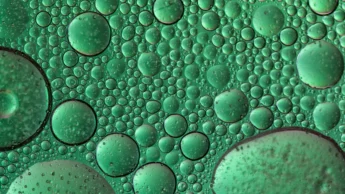The climate goals must be met no matter what. Reasons enough for the Dutch government to boost the use of renewable energy more. The same goes for the use of waste heat. The goal? A resilient and sustainable energy future for the Netherlands.
In this blog, we look at the Dutch government and how they encourage the use of waste heat. From subsidies to regulations; we look at the policy measures that pave the way for a wide range of waste heat applications.
Do you want your innovation to make it easier to meet ESG targets? Would you like to develop your idea in collaboration with Beeliners? We would love to help you! Feel free to drop by for a cup of coffee and we will be happy to discuss the possibilities with you.
Subsidy schemes and waste heat projects
To promote the implementation of waste heat applications, the Dutch government has set up several subsidy schemes. Companies investing in projects to utilise waste heat can claim financial support. These subsidies not only encourage companies to use residual heat efficiently, but also contribute to reducing the overall CO2 emissions from the industrial sector.

Heat act
The Dutch Heat Act plays a central role in regulating the heat market and promoting heat exchange. By providing clear frameworks for the supply and transport of heat, the government encourages the development of heat networks. This contributes to more efficient use of waste heat by making it easier to exchange heat between different industries and urban areas.
Wondering what you can use waste heat for? You can read about it in our blog.
Energy performance and environmental standards
The government imposes strict energy performance and environmental standards on industries and companies. Tightening these standards increases the pressure on organisations to improve their energy efficiency and embrace more sustainable practices. This encourages companies to consider waste heat as a valuable resource and use it in innovative ways, contributing to the overall sustainability of energy supply.
Local cooperation and knowledge sharing
The government actively supports the formation of heat clusters, in which companies and institutions share their waste heat. Encouraging local cooperation and knowledge sharing creates synergy opportunities that increase the overall efficiency of waste heat projects. This not only promotes sustainability at the local level but also contributes to a more integrated and resilient energy infrastructure.
Research and innovations
To promote the development of new technologies for utilising waste heat, the government invests in research and innovation. This includes funding research projects, encouraging technological innovations and stimulating the application of new ideas in practice. This incentive paves the way for continuous progress in the field of waste heat applications.
Video: Energy of the future
Working on your ESG-innovation together with Beeliners
Do you have a good idea for a product, service, process or technological innovation that makes it easier to achieve ESG goals? And would you like to develop your idea in collaboration with Beeliners? Beeliners has an innovation cell dedicated to innovations in energy and heating systems. Feel free to drop by for a cup of coffee and we will be happy to discuss the possibilities with you.
Also interesting
-

How will the production of green gas be encouraged?
In an era when the world is paying increasing attention to renewable energy sources, green gas is a promising alternative that has the potential to reduce our dependence on fossil fuels. Green gas, also known as biomethane, is produced from organic material such as green waste, sewage sludge, or even… Read More
-

What is bio-energy?
In an era when the urgency of renewable energy sources is becoming increasingly prominent, bioenergy takes centre stage as a promising and environmentally friendly solution. This renewable form of energy, derived from biological sources such as plants, offers a range of possibilities for reducing our dependence on fossil fuels and… Read More
-

This will encourage the use of renewable energy
In a world where the calls for sustainability and environmental awareness are getting louder, the use of renewable energy sources is central to the fight against climate change. While individual efforts by citizens and businesses play an important role, a crucial responsibility rests on governments worldwide to accelerate the transition… Read More

